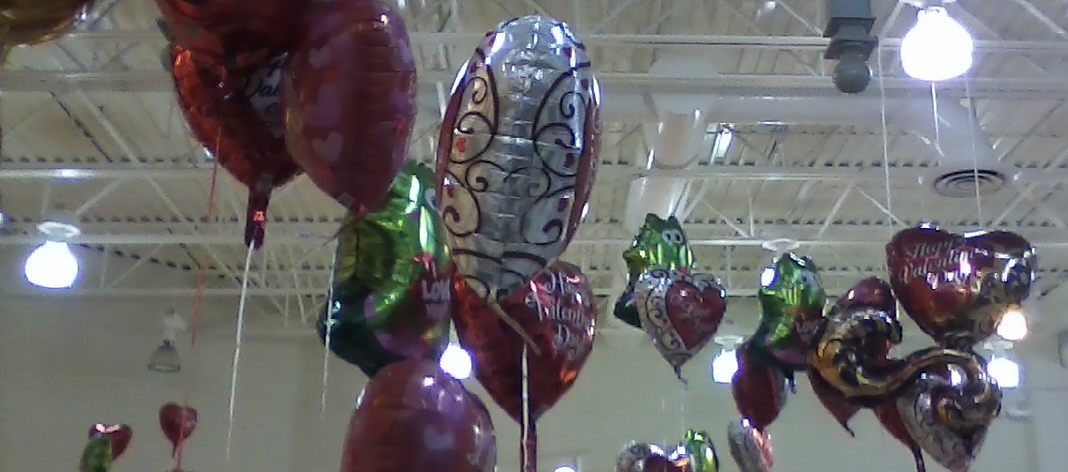 That silly, silly meaningfulness; the language game of love
That silly, silly meaningfulness; the language game of love
 When night is almost gone, but before the next dawn has come, sometimes, you can see a brilliant star, the brightest star, in the eastern sky; it is the morning star.
When night is almost gone, but before the next dawn has come, sometimes, you can see a brilliant star, the brightest star, in the eastern sky; it is the morning star.
What do we talk about when we talk about the morning star? Believe it or not, this kind of question was the sort of thing that dominated discussions within earlier 20th Century Linguistic Philosophy. You see, the morning star isn’t really a star, nor does it particularly belong to the morning. The referent—the object that the phrase refers to—is the planet Venus. Strangely enough, Venus is also occasionally the evening star, depending upon when you see it. Obviously, although they both refer to the planet Venus, the phrases “morning star” and “evening star” don’t mean the same thing at all. Regardless, however, of this quirk of words, both phrases mean something, and we understand both. Language doesn’t always work in clear equivalence or rules.
What do we talk about when we talk about love?
Nothing. If we analyze the things we say to people we love, most of the things we say are meaningless in themselves, and many of the things we say are downright silly. From Shakespeare’s Orlando calling upon the Thrice-Crowned Queen of Heaven to bear witness to his love to MacBratney’s Nut Brown Hare loving his little bunny to the moon and back, the words don’t really “refer” to anything in a meaningful way. From “My love is like a red, red, rose…” to “Love you more!” they are games we play. What the words do is connect the participants in a specific conversation as players in a game—the only important game—in a distinct, intense and very personal way.
What do we talk about when we talk about love?
Like playing a game of “Keep It Up” with a red balloon, the point of the language game of love is to keep the ball in the air, the game in motion, the participants connected, the love alive, and the beloved loved.
What do we talk about when we talk about love?
Of course, we can give our loved ones bread and soup, or bake a Valentine’s Day Ginger and Chocolate Chip Cake for our co-workers, but there are an infinite variety of ways to play this game. The language game of love can be an individualized school lunch packed with care, the Marx Brothers routines my dad and my uncles did for each other and for my grandma after my grandpa’s funeral, a game of catch with a child or dog, and, of course, the mystically silly dance of sex.
What do we talk about when we talk about love?
Of course there can be the cliché red roses and chocolates of Valentine’s Day, or of locking a padlock with you and your lover’s  names on it on a public place, but there is so much more. The language game of love is the gestures and questions of still being curious about the stranger you have lived with 20 years, standing up to meet a lover at the end of an exhausting day, or washing the dishes, pots, and pans for somebody who has cooked your supper. It is shining your shoes, buying a new tie or putting on lipstick to win the heart of someone you see every day.
names on it on a public place, but there is so much more. The language game of love is the gestures and questions of still being curious about the stranger you have lived with 20 years, standing up to meet a lover at the end of an exhausting day, or washing the dishes, pots, and pans for somebody who has cooked your supper. It is shining your shoes, buying a new tie or putting on lipstick to win the heart of someone you see every day.
These things have no logical content and they are not sentences that can be diagrammed or translated into the IFFs, tildes & horseshoes of Logical Language L.
Yet they are the most important things we ever say, ever have said, or ever will say.
So, speak of love. Tell someone something silly, silly, and meaningful today.

And your coworkers very much appreciate the yummy gingerbread chocolate chip cake.
It bothers me when people throw the words I love you around. When I hear them like that they are meaningless, just words floating around. I think people should say thank you, I appreciate you, I care about you, you’re such a special person, I really like you, or a hundred other words to show somebody you care, but I love you shouldn’t be just thrown out there in the air for whoever to grab or they become nothing. I only tell my mom ( my dad and my brother died years ago ) and my husband that I love them because if I say I love you to somebody it means I will kill or die for die for them. That’s how important those words are to me, they have true meaning and shouldn’t be used lightly.